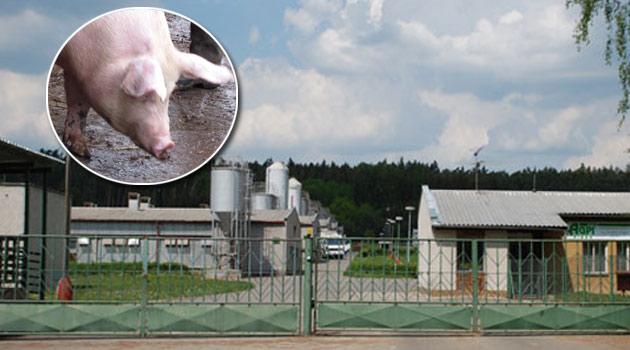Czech Republic: Pig farm at Lety will apparently remain on Romani Holocaust site, talks are going nowhere

The pig farm currently occupying the site of the former concentration camp for Romani people at Lety by Písek will apparently remain there. Czech Human Rights Minister Jiří Dienstbier (Czech Social Democratic Party – ČSSD), who has led several negotiations with the owner, says no concrete conclusion has arisen from the dialogue.
At the sites occupied by the pig farm today there was a camp during the Second World War in which more than 300 Romani people perished. The victims today were remembered at the nearby memorial by the surviving relatives and the public during a commemorative ceremony at Lety, which was attended by Dienstbier and by Czech Justice Minister Robert Pelikán (ANO).
"We are acting on this matter, but at this moment there is no fundamental change to discuss. We want a dignified sacred site here. It is understandable that for the surviving relatives of the victims it is unacceptable that a pig farm is standing at such a place. Try to imagine something of the sort, for example, at Auschwitz," Dienstbier said.
The costs of buying the farm are estimated in the hundreds of millions of Czech crowns. The camp at Lety was opened in August 1940, first as a disciplinary labor camp.
The same sort of facility also existed in Hodonín by Kunštát. In January 1942 both camps were changed into transit camps, and in August, "Gypsy camps" were established at both locations.
From then until May 1943 a total of 1 308 Romani children, men and women passed through the Lety camp, 327 of whom perished there and more than 500 of whom were transported to Auschwitz. Less than 600 Romani prisoners ever returned to the territory of the Protectorate of Bohemia and Moravia from the concentration camps.
According to estimates, 90 % of Czech Roma were murdered by the Nazis. Today the commemorative site at Lety is administered by the Lidice Memorial.
Čeněk Růžička, chair of the Committee for the Redress of the Romani Holocaust (VPORH), which holds the commemorative ceremony every year, said he would welcome the appointment of a different entity to take care of the site. Last autumn he sent a letter to the Czech Government to that effect, stating that he would prefer the commemorative site be administered by the VPORH itself.
"It is probably appropriate to respect the wishes of the relatives of the victims. I personally would consider it most logical if the administration of such a site were performed by the Museum of Romani Culture," Dienstbier said.